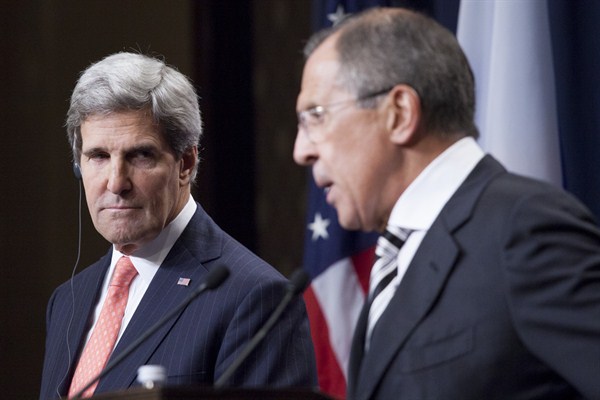American and Russian diplomats have proved to be congenitally unable to end the Syrian war. Could their military counterparts do any better? Last week, the Obama administration accepted a Russian offer of military talks over Syria. This is not necessarily a reason for much optimism. Moscow has sent aircraft, air-defense systems and significant amounts of new equipment to reinforce Syrian President Bashar al-Assad’s beleaguered regime. Some analysts believe that Russian troops will be fighting on the ground soon. This could make the war even more dangerous.
The goal of the new Russian-American talks, which kicked off with a phone call between the two countries’ defense ministers last Friday, is to minimize the risks of a direct clash between their forces. U.S. jets are bombing the so-called Islamic State across much of Syria. To ensure that they don’t hit a Russian convoy by accident, or that a Russian ground-to-air missile doesn’t down an American aircraft, it may be necessary to establish ongoing military-to-military contacts.
Yet some diplomatic observers believe that Russia’s direct military engagement in Syria is, counterintuitively, a peace initiative disguised as an act of war. Russian President Vladimir Putin may hope that a short, sharp intervention will stop Syria from sliding into even worse chaos. That could be the basis for Russia to act as peacemaker, bringing Assad to the table for serious negotiations at last. There are rumors that Putin will outline his “master plan” when he addresses the U.N. General Assembly later this month.

